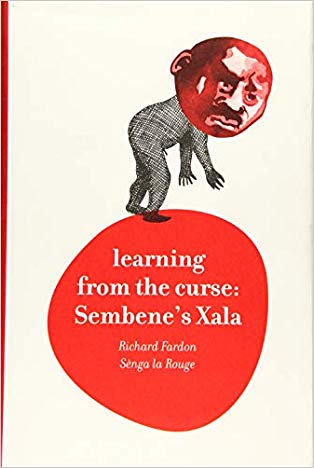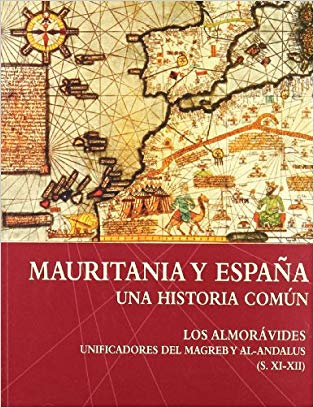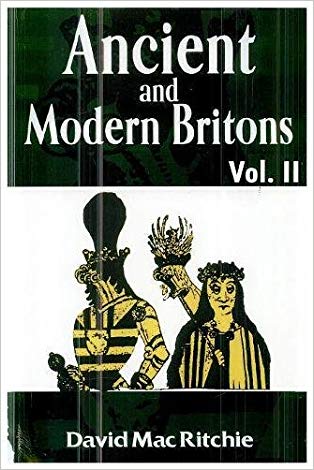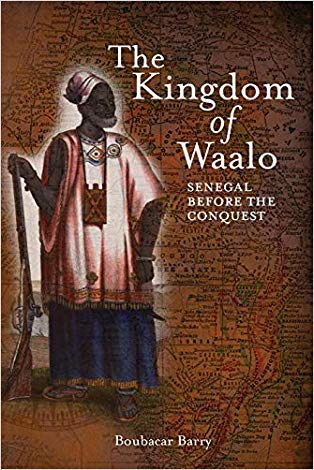Ir al contenido




 Whoever has gone into one of our Antiquarian Museums, and glanced with some curiosity, and perhaps with growing interest, at the withered fragments of canoes, preserved from total decay by the peat out of which they were dug, --at the stone heads of weapons whose handles have rotted long ago,--at the flint knives and arrow-heads, at the sun-dried pottery, --at the gaudy beads of amber or of colorued glass,--at the combs and ornaments curiously carved out of bone, --and alt all such other relics of a remote past,--has soon, in all likelihood, found himself speculating upon the nature of the people who made and used these things. The things themselves are plainly allied to the weapons and ornaments of existing savage races, and we know that the people vaguely spoken of as Ancient Britons, to whom these articles are attributed, were themselves allied to such races by community of custom. They wore little or no clothing, they tattooed their bodies and faces, they painted themselves blue or green, and some tribes smeared themselves over with iron ore; some of them are stated to have been cannibals: --could all su
Whoever has gone into one of our Antiquarian Museums, and glanced with some curiosity, and perhaps with growing interest, at the withered fragments of canoes, preserved from total decay by the peat out of which they were dug, --at the stone heads of weapons whose handles have rotted long ago,--at the flint knives and arrow-heads, at the sun-dried pottery, --at the gaudy beads of amber or of colorued glass,--at the combs and ornaments curiously carved out of bone, --and alt all such other relics of a remote past,--has soon, in all likelihood, found himself speculating upon the nature of the people who made and used these things. The things themselves are plainly allied to the weapons and ornaments of existing savage races, and we know that the people vaguely spoken of as Ancient Britons, to whom these articles are attributed, were themselves allied to such races by community of custom. They wore little or no clothing, they tattooed their bodies and faces, they painted themselves blue or green, and some tribes smeared themselves over with iron ore; some of them are stated to have been cannibals: --could all su
 This volume work of Scottish Historian David Mac Ritchie, 1851-1925, first published in 1884 and long out of print, its impact will have as profound an impact as Gerald Massey and Godfey Higgins.????????
This volume work of Scottish Historian David Mac Ritchie, 1851-1925, first published in 1884 and long out of print, its impact will have as profound an impact as Gerald Massey and Godfey Higgins.????????


 Situated along the Senegal River, the Kingdom of Waalo was the smallest of the Wolof states of Senegal, but it illustrates the broader consequences of a shift from trans-Saharan to trans-Atlantic commerce during a time of competing European, Muslim, and indigenous African forces. From the establishment of a French trading post in 1659 to the early nineteenth century, the history of Waalo was closely tied to French interests in St. Louis, popular revolutionary Islamic movements, and internal rivalries between competing royal families and provincial leaders. Stimulating Waalo's socio-political changes were the devastations and fluctuations of the Atlantic slave trade, as well as the Muslim attack on its aristocracy. Torn by internal divisions, devastated by French and Berber incursions, Waalo's institutions and its economy declined. Residents of Waalo sought their own solutions only for external agents to ruin their efforts. By the nineteenth century, the French attempted to establish a plantation economy in Waalo, culminating in their military control of the state and the Senegal valley. This newly tran
Situated along the Senegal River, the Kingdom of Waalo was the smallest of the Wolof states of Senegal, but it illustrates the broader consequences of a shift from trans-Saharan to trans-Atlantic commerce during a time of competing European, Muslim, and indigenous African forces. From the establishment of a French trading post in 1659 to the early nineteenth century, the history of Waalo was closely tied to French interests in St. Louis, popular revolutionary Islamic movements, and internal rivalries between competing royal families and provincial leaders. Stimulating Waalo's socio-political changes were the devastations and fluctuations of the Atlantic slave trade, as well as the Muslim attack on its aristocracy. Torn by internal divisions, devastated by French and Berber incursions, Waalo's institutions and its economy declined. Residents of Waalo sought their own solutions only for external agents to ruin their efforts. By the nineteenth century, the French attempted to establish a plantation economy in Waalo, culminating in their military control of the state and the Senegal valley. This newly tran
 This book details Ethiopia's triumph over fascism during the second Italo-Ethiopian War and the rebuilding process under the outstanding leadership of Emperor Haile Selassie I.?
This book details Ethiopia's triumph over fascism during the second Italo-Ethiopian War and the rebuilding process under the outstanding leadership of Emperor Haile Selassie I.?


 Whoever has gone into one of our Antiquarian Museums, and glanced with some curiosity, and perhaps with growing interest, at the withered fragments of canoes, preserved from total decay by the peat out of which they were dug, --at the stone heads of weapons whose handles have rotted long ago,--at the flint knives and arrow-heads, at the sun-dried pottery, --at the gaudy beads of amber or of colorued glass,--at the combs and ornaments curiously carved out of bone, --and alt all such other relics of a remote past,--has soon, in all likelihood, found himself speculating upon the nature of the people who made and used these things. The things themselves are plainly allied to the weapons and ornaments of existing savage races, and we know that the people vaguely spoken of as Ancient Britons, to whom these articles are attributed, were themselves allied to such races by community of custom. They wore little or no clothing, they tattooed their bodies and faces, they painted themselves blue or green, and some tribes smeared themselves over with iron ore; some of them are stated to have been cannibals: --could all su
Whoever has gone into one of our Antiquarian Museums, and glanced with some curiosity, and perhaps with growing interest, at the withered fragments of canoes, preserved from total decay by the peat out of which they were dug, --at the stone heads of weapons whose handles have rotted long ago,--at the flint knives and arrow-heads, at the sun-dried pottery, --at the gaudy beads of amber or of colorued glass,--at the combs and ornaments curiously carved out of bone, --and alt all such other relics of a remote past,--has soon, in all likelihood, found himself speculating upon the nature of the people who made and used these things. The things themselves are plainly allied to the weapons and ornaments of existing savage races, and we know that the people vaguely spoken of as Ancient Britons, to whom these articles are attributed, were themselves allied to such races by community of custom. They wore little or no clothing, they tattooed their bodies and faces, they painted themselves blue or green, and some tribes smeared themselves over with iron ore; some of them are stated to have been cannibals: --could all su This volume work of Scottish Historian David Mac Ritchie, 1851-1925, first published in 1884 and long out of print, its impact will have as profound an impact as Gerald Massey and Godfey Higgins.????????
This volume work of Scottish Historian David Mac Ritchie, 1851-1925, first published in 1884 and long out of print, its impact will have as profound an impact as Gerald Massey and Godfey Higgins.????????
 Situated along the Senegal River, the Kingdom of Waalo was the smallest of the Wolof states of Senegal, but it illustrates the broader consequences of a shift from trans-Saharan to trans-Atlantic commerce during a time of competing European, Muslim, and indigenous African forces. From the establishment of a French trading post in 1659 to the early nineteenth century, the history of Waalo was closely tied to French interests in St. Louis, popular revolutionary Islamic movements, and internal rivalries between competing royal families and provincial leaders. Stimulating Waalo's socio-political changes were the devastations and fluctuations of the Atlantic slave trade, as well as the Muslim attack on its aristocracy. Torn by internal divisions, devastated by French and Berber incursions, Waalo's institutions and its economy declined. Residents of Waalo sought their own solutions only for external agents to ruin their efforts. By the nineteenth century, the French attempted to establish a plantation economy in Waalo, culminating in their military control of the state and the Senegal valley. This newly tran
Situated along the Senegal River, the Kingdom of Waalo was the smallest of the Wolof states of Senegal, but it illustrates the broader consequences of a shift from trans-Saharan to trans-Atlantic commerce during a time of competing European, Muslim, and indigenous African forces. From the establishment of a French trading post in 1659 to the early nineteenth century, the history of Waalo was closely tied to French interests in St. Louis, popular revolutionary Islamic movements, and internal rivalries between competing royal families and provincial leaders. Stimulating Waalo's socio-political changes were the devastations and fluctuations of the Atlantic slave trade, as well as the Muslim attack on its aristocracy. Torn by internal divisions, devastated by French and Berber incursions, Waalo's institutions and its economy declined. Residents of Waalo sought their own solutions only for external agents to ruin their efforts. By the nineteenth century, the French attempted to establish a plantation economy in Waalo, culminating in their military control of the state and the Senegal valley. This newly tran This book details Ethiopia's triumph over fascism during the second Italo-Ethiopian War and the rebuilding process under the outstanding leadership of Emperor Haile Selassie I.?
This book details Ethiopia's triumph over fascism during the second Italo-Ethiopian War and the rebuilding process under the outstanding leadership of Emperor Haile Selassie I.?






